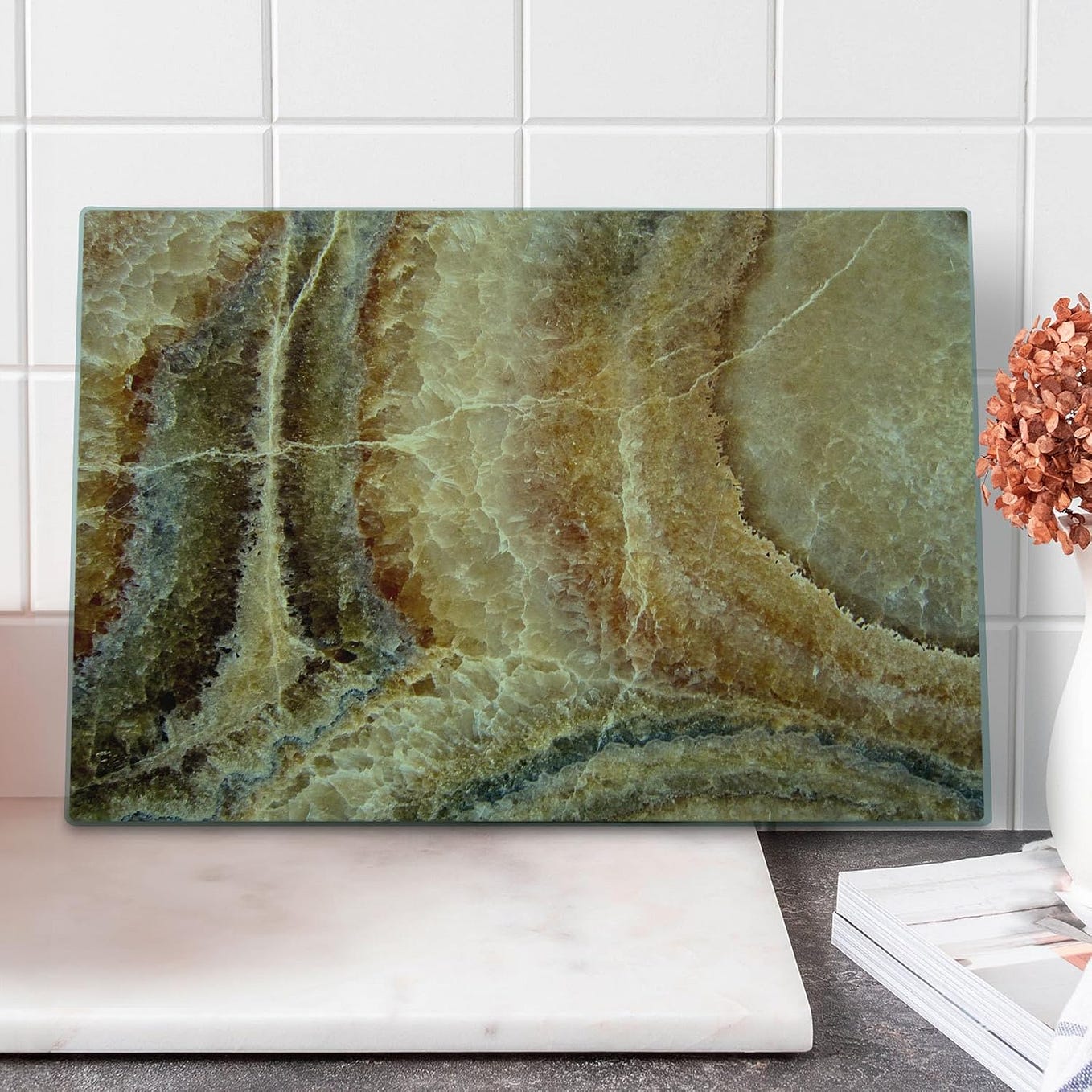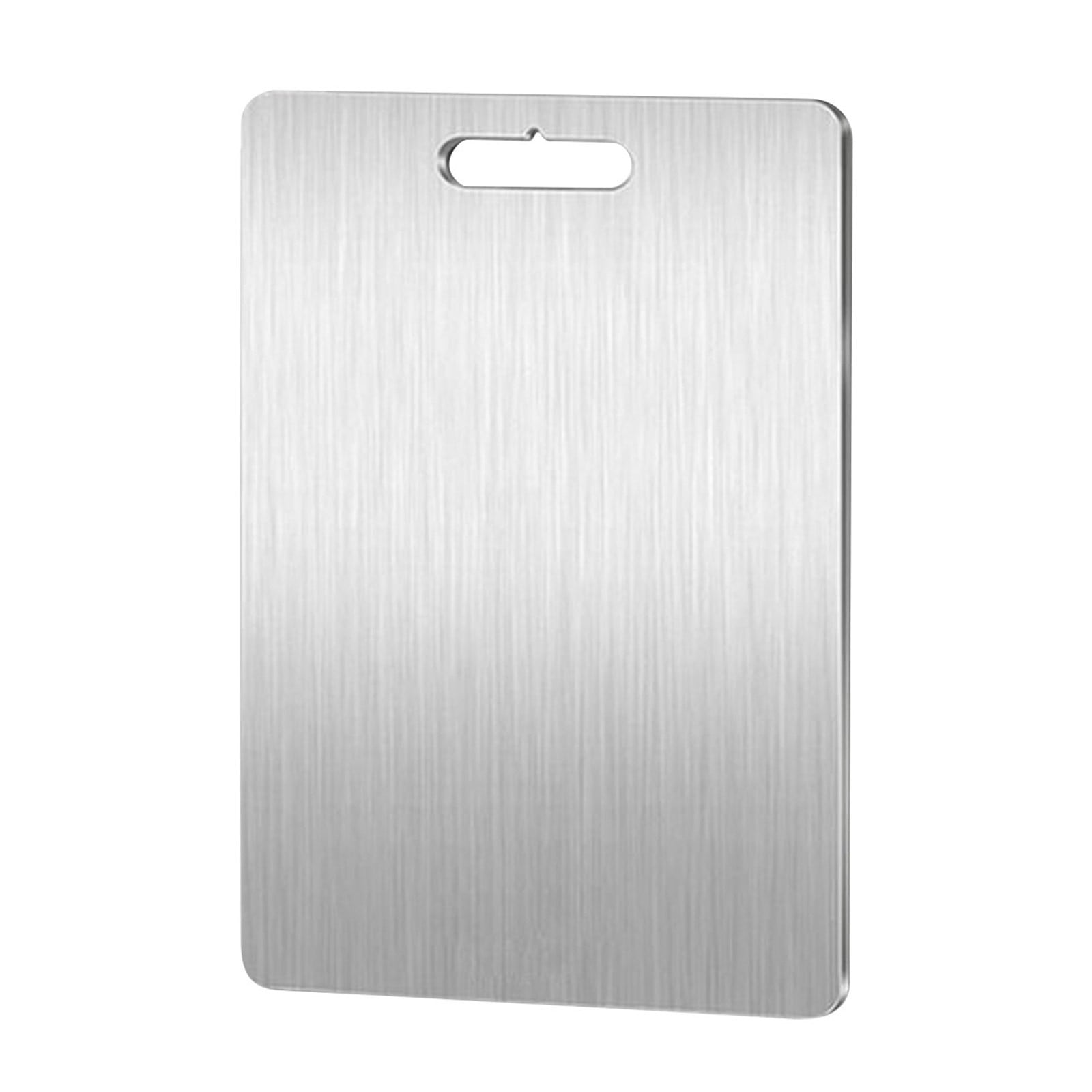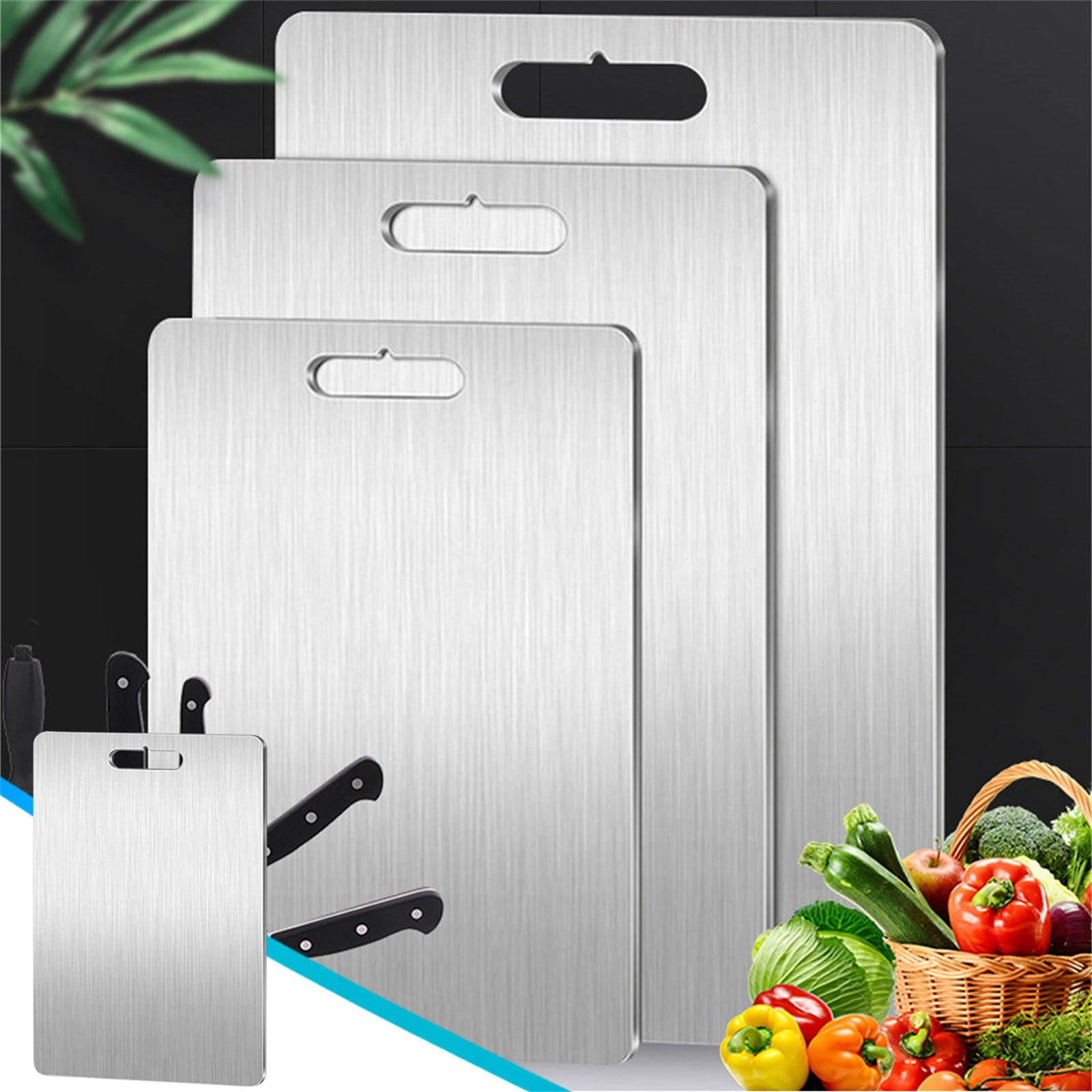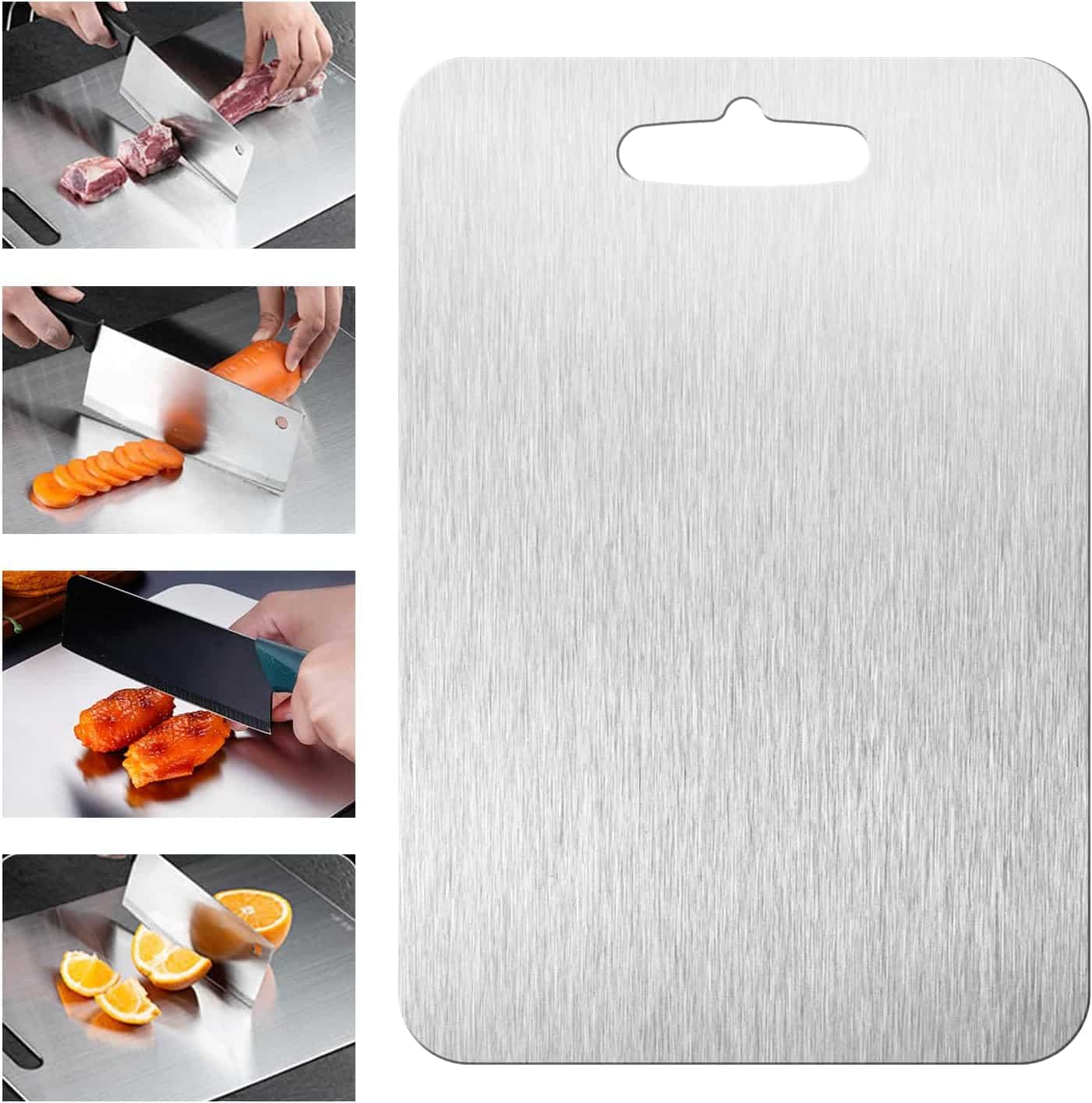Are Titanium Cutting Boards Bad For Knives

Imagine the rhythmic thwack of a chef's knife, slicing effortlessly through a ripe tomato. The satisfying sounds and scents fill your kitchen, a symphony of culinary creation. But what if the silent accomplice – the cutting board – is actually sabotaging your beloved blades?
The rising popularity of titanium cutting boards has sparked debate amongst home cooks and professional chefs alike. Are these sleek, modern surfaces truly a kitchen upgrade, or are they a secret enemy to your knives? This article dives into the question: Are titanium cutting boards bad for knives? We'll explore the science, weigh the opinions of experts, and help you make an informed decision about what's best for your blades and your cooking.
The Allure of Titanium
Titanium has captivated various industries, from aerospace to medical implants, thanks to its remarkable properties. It's renowned for its strength, lightweight nature, and corrosion resistance. The appeal of a titanium cutting board lies in its perceived durability, hygiene, and sleek aesthetic.
Many manufacturers promote titanium cutting boards as naturally antibacterial and easy to clean, a seemingly perfect solution for modern kitchens. But does this translate to being kind to your knives?
The Knife's Perspective: Hardness Matters
The core issue hinges on the concept of hardness. A knife's blade is made of steel, which has a certain hardness rating on the Rockwell scale. The cutting board's hardness, relative to the knife's, determines the degree of wear and tear inflicted upon the blade.
Ideally, a cutting board should be softer than the knife steel. This allows the blade to slice into the board's surface, rather than meeting a rigid resistance that can dull or even chip the edge.
Titanium's Hardness: A Red Flag
Here's where the potential problem with titanium arises. Titanium and its alloys can be significantly harder than many common knife steels. This is especially true if the cutting board is made from a hardened titanium alloy.
If a knife blade encounters a cutting board harder than itself, it's the blade that will suffer. Regular use on a hard surface like titanium can lead to premature dulling, chipping, and even bending of the blade.
Think of it like rubbing sandpaper against a knife's edge. The sandpaper, being harder, will gradually wear down the blade's sharp surface.
Expert Opinions and Anecdotal Evidence
While definitive scientific studies on the specific impact of titanium cutting boards on knives are somewhat limited, expert opinions tend to lean towards caution. Many chefs and knife sharpeners advise against using cutting boards made of excessively hard materials.
They cite anecdotal evidence from customers who have experienced accelerated dulling of their knives after switching to titanium boards. Others point out that the potential for microscopic chipping, while not immediately visible, can degrade the blade's performance over time.
Knife sharpening professionals often see the consequences of poor cutting board choices firsthand. A dull knife is a dangerous knife, leading to slips and accidents in the kitchen.
"A good cutting board should be gentle on your knives," says renowned knife sharpener, Bob Kramer, in numerous interviews. "You want a surface that yields slightly, not one that fights back."
Alternatives and Considerations
If you're concerned about the impact of a titanium cutting board on your knives, plenty of excellent alternatives exist. Wood, especially end-grain wood, is a popular choice among chefs. It's relatively soft, self-healing (to some extent), and provides a good balance between durability and knife-friendliness.
High-quality plastic cutting boards are another option. Look for boards made from materials like polyethylene, which are designed to be softer than steel. Regular cleaning and sanitization are essential for plastic boards.
Bamboo cutting boards fall somewhere in between. While bamboo is a sustainable resource, it can be harder than some woods and plastic, so consider its hardness relative to your knives.
A Note on Surface Finish
Even if the overall material of a cutting board isn't excessively hard, the surface finish can play a role. A rough or textured surface can create more friction and wear on the blade than a smooth one.
Some titanium cutting boards feature a specialized coating designed to reduce friction. However, the effectiveness and longevity of these coatings can vary. It's important to research the specific product and read reviews from other users.
Beyond Hardness: Other Factors to Consider
While hardness is a primary concern, other factors contribute to the overall cutting experience and knife maintenance. Stability is crucial; a cutting board that slips or rocks during use is a safety hazard.
Ease of cleaning is also important. Cutting boards should be easy to sanitize to prevent the spread of bacteria. Weight is another factor; a heavier board is more stable but may be less convenient to move and store.
The size of the cutting board should be appropriate for the types of tasks you typically perform. A larger board provides more workspace and reduces the risk of ingredients falling off the edge.
The Verdict: Proceed with Caution
Are titanium cutting boards bad for knives? The answer, while not a definitive "yes," leans towards caution. The hardness of titanium and its alloys poses a potential risk to the sharpness and longevity of your knife blades.
Unless a specific titanium cutting board is explicitly designed and tested to be knife-friendly, with a softer surface treatment, it's generally best to err on the side of caution and opt for a cutting board made of wood, high-quality plastic, or another proven material.
Ultimately, the best cutting board is one that provides a safe, stable, and enjoyable cutting experience, while also preserving the sharpness and integrity of your valuable knives. Choose wisely, and your blades (and your meals) will thank you.


















